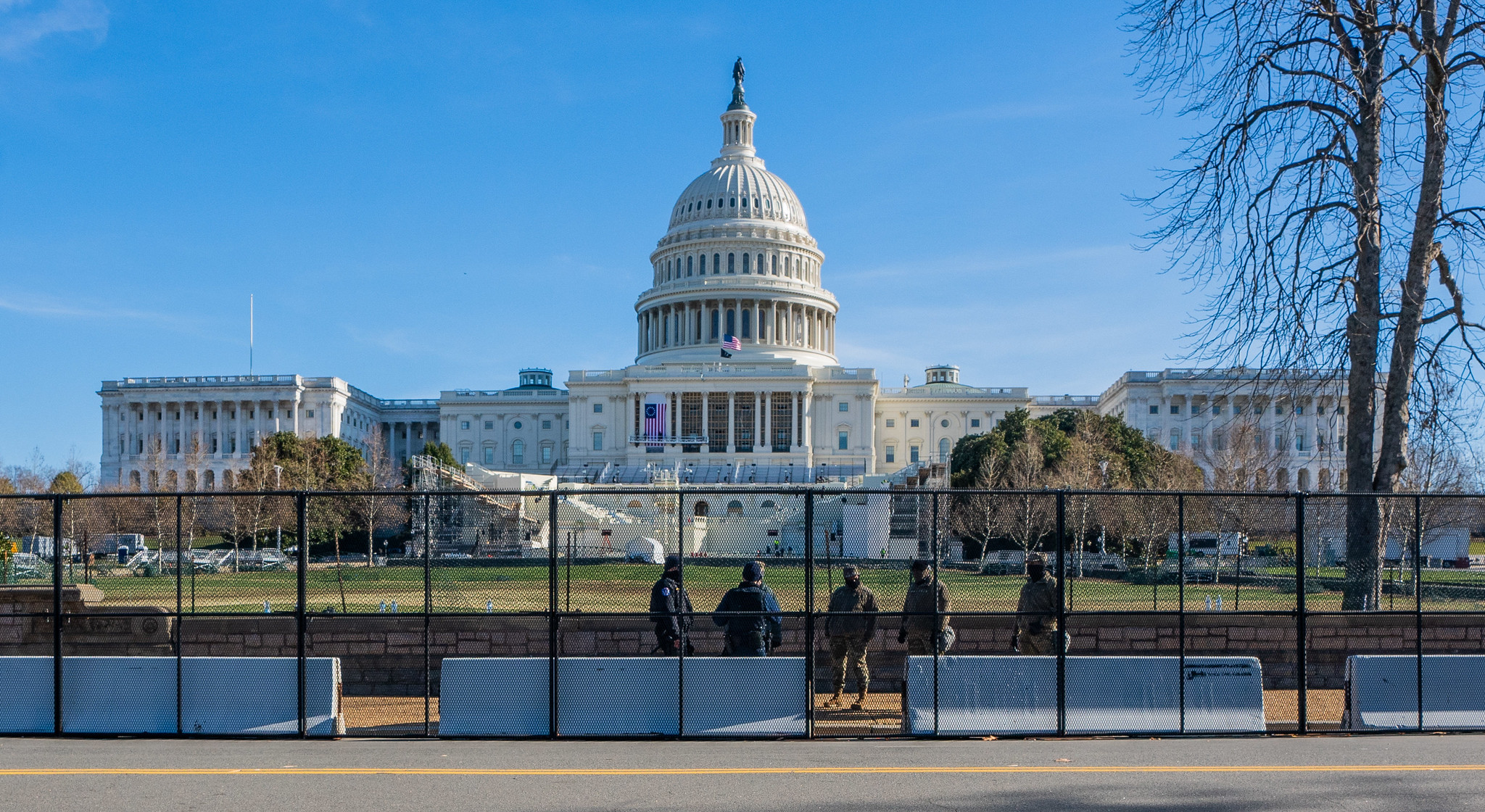The 2021 NDAA, White Supremacy and Domestic Extremism
The NDAA created new programs for combating white supremacy and domestic terrorism, but it omits two important proposals included in earlier versions of the bill. The Biden administration should consider adopting both into its security strategy.

Published by The Lawfare Institute
in Cooperation With

In early January, Congress overcame a presidential veto and enacted the National Defense Authorization Act for fiscal 2021 (NDAA). The NDAA includes important requirements for how federal agencies address white supremacy and domestic terrorism, which has been brought to the forefront again in light of the recent siege on Capitol Hill. For instance, the NDAA includes provisions mandating certain departments and agencies develop new strategies and implement new programs to better evaluate, analyze and counter white supremacy abroad, especially with respect to how Moscow supports these and other racially and ethnically motivated terrorists (REMT).
However, the NDAA omits two proposals related to domestic terrorism that were included in earlier versions of the bill. One would have created a national commission on U.S. counterterrorism policy, and the other would have developed a comprehensive report on domestic terrorist risks and threats. These proposals, if implemented, could significantly contribute to how the federal government comprehends, coordinates and assesses its response to today’s threat environment. Accordingly, the Biden administration should consider using its existing authorities to implement (with some amendment) both proposals as part of its broader framework to combat white supremacy and domestic extremism.
Understanding White Identity Terrorism Globally
In 2020, the U.S. Department of State undertook some measures to acknowledge and address the violence perpetrated by white supremacists outside the United States. For instance, in April 2020, the State Department designated a white supremacist group, the Russian Imperial Movement (and some of its members) as Specially Designated Global Terrorists. In addition, in its most recent Country Reports on Terrorism, the State Department identified REMT—and, in particular, white supremacy—as “a threat to the global community” and indicated that the department “is working with our law enforcement and foreign partners to take concrete actions to address this growing threat.” The NDAA requires the State Department, in conjunction with other federal agencies, to do more.
Section 1299F of the NDAA mandates that the State Department develop a strategy for “countering white identity terrorism globally.” This strategy must include an assessment of the global threat from white identity terrorism abroad and address a list of requirements set forth in the law, including the following:
- A plan for using public diplomacy, including by the president, the secretary of state and other senior officials, to degrade and delegitimize white identity terrorism.
- A process for exposing when, and how, foreign governments support white identity terrorist organizations and ideologies.
- A plan for engaging with foreign governments, internet service providers and other relevant technology entities to prevent or limit the spread of white identity terrorism online.
- A strategy for improving information and intelligence sharing with foreign countries.
- Using terrorist-designation authorities to address white identity terrorism.
The NDAA also requires the State Department to incorporate all credible data and information about white identity terrorism (such as attacks, perpetrators and victims; the size and identification of white supremacist organizations and networks; and the identification of notable ideologues) in its annual country reports on terrorism. Section 1237 of the NDAA contains similar reporting obligations with respect to how Moscow sponsors and supports REMT. In particular, § 1237(a) mandates that the director of national intelligence, in coordination with other federal departments, draft a report describing how Russia supports “foreign racially and ethnically motivated violent extremist groups and networks.” The metrics and information derived from these NDAA reporting requirements will serve as important benchmarks for assessing the effectiveness and progression of the U.S. government’s strategy and programs for combating white supremacy and other REMT.
National Commission on U.S. Counterterrorism Policy
The version of the NDAA that passed in the House of Representatives in July 2020 included a provision (§ 1285) establishing a national commission on U.S. counterterrorism policy. As described, the commission was to comprise members with significant experience and expertise in counterterrorism, diplomacy, law enforcement, the U.S. military, intelligence, human rights, civil rights or civil liberties. The purpose of the commission would be to assess the U.S. government’s overall counterterrorism programs and authorities, including specific issues related therein, and draft a formal report to Congress memorializing its conclusions, findings and recommendations. Importantly, the commission was to examine the evolution of threats facing the United States since the 9/11 attacks from both international and domestic terrorist activities and provide an assessment on the connections between the two, the risks such threats pose relative to other security threats, and the effectiveness of federal counterterrorism policies, programs and activities on such threats. However, § 1285 was not included in the final version of the NDAA enacted into law.
Given the often bifurcated manner in which the federal government addresses international and domestic terrorism, it would be strategically advantageous to have an independent commission analyze and assess the government’s foreign and domestic counterterrorism programs and policies holistically. Accordingly, the Biden administration should consider establishing a formal advisory committee to perform the functions designated to the national commission on U.S. counterterrorism policy in § 1285. In fact, it is common for presidents to issue directives establishing (or directing Cabinet officials to establish pursuant to their own authorities) advisory committees, councils, and task forces to allow subject matter experts from the public to furnish independent advice and recommendations on complex issues. Moreover, an independent advisory committee related to domestic terrorism has the added benefit of bringing a degree of bipartisanship to (what at least appears to be) a politically charged issue.
Coordinating Domestic Terrorism Threat Assessments
The version of the NDAA passed by the House in July 2020 included a provision (§ 1781) requiring the FBI, the Office of Intelligence and Analysis (an intelligence office within the Department of Homeland Security) and the National Counterterrorism Center to draft a report for Congress that “includes an evaluation of the nature and extent of the domestic terror threat and domestic terrorist groups.” Section 1781 further provided that this report must describe the manner in which domestic terror activity is tracked and reported; identify all known domestic terror groups, whether formal in nature or loosely affiliated ideologies, and their respective ideologies; and describe the efforts of such groups, if any, to infiltrate or target certain domestic groups. This section also did not make it to the final version of the NDAA signed into law.
The FBI and the Office of Intelligence and Analysis routinely issue assessments and reports on domestic terrorist threats and activities. (Due to certain legal and policy issues pertaining to reporting on domestic activities, the National Counterterrorism Center has played less of a role in this area.) Accordingly, the key issue that § 1781 is seeking to address is not the creation of assessments and reports concerning domestic terrorism but, rather, the creation of such products that represent the unified (and not disparate) understanding of the federal department and agencies vested with domestic counterterrorism missions. The type of coordination required to develop such a domestic terrorism report can also serve as a basis to better assess the overlapping roles and responsibilities of these federal agencies in order to streamline efforts and eliminate duplication in this area. Accordingly, the Biden administration should consider adopting similar reporting and assessment requirements as part of its broader framework to combat white supremacy and domestic extremism.
However, the Biden administration should be cautious not to adopt § 1781 in its entirety. More specifically, the administration should avoid implementing § 1781’s requirement that federal agencies “identify all known domestic terror groups” as such a process could implicate constitutional and other legal concerns related to the designation of domestic organizations as terrorist groups. Accordingly, any directive issued by the incoming administration to implement requirements similar to those outlined in § 1781 should focus on having the law enforcement and intelligence communities working in concert to develop a mutual and compressive understanding of significant domestic terrorist threats to the United States (and not on designating domestic terrorist groups).



.jpg?sfvrsn=8588c21_5)
-final.png?sfvrsn=b70826ae_3)
